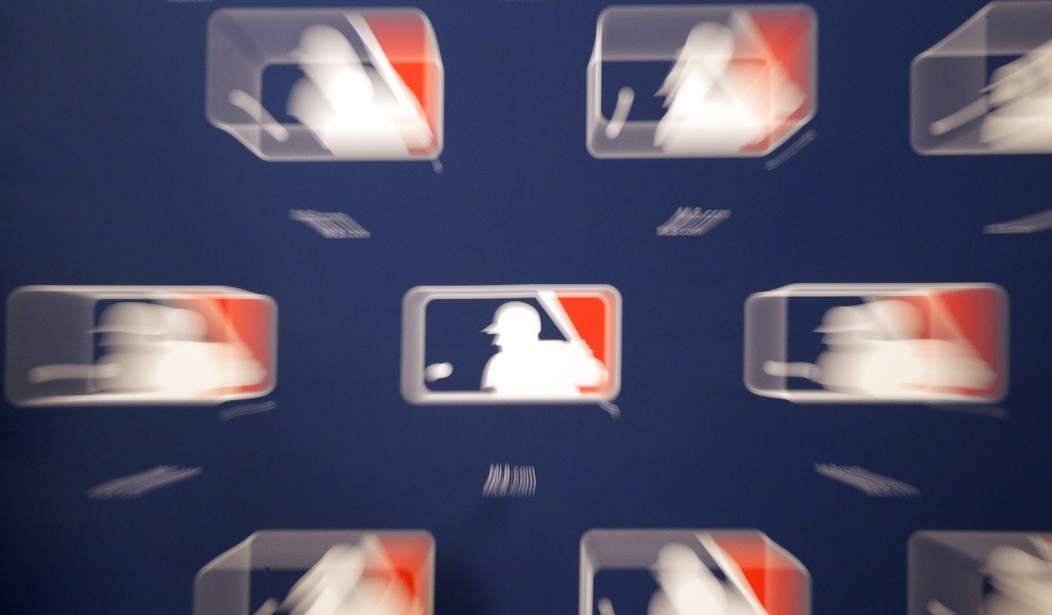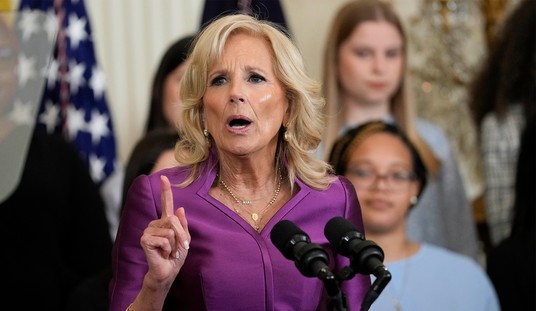Greetings from the sports desk located somewhere below decks of the Good Pirate Ship RedState. Sammy the Shark and Karl the Kraken are busy taking notes from the various rookie tournaments currently taking place, so as per normal I’ll handle the rest of the sports reporting.
College football is off this weekend. Oh, there will be plenty of games played. However, as far as any meaningful ones transpiring, the schedule is definitely off. Not a single matchup between Top 25 teams will take place. Thus, the interest will be in who does or doesn’t play. Alabama will start Tyler Buchner at quarterback in lieu of Jalen Milroe, who was anything but spectacular in the Crimson Tide’s loss to Texas last week. Given that Alabama is playing South Florida, it should be a relatively easy setting for Buchner’s debut. So, unless you fervently believe the South Carolina Gamecocks have a fighting chance against Georgia, about the only thing to look forward to is keeping an eye on the score ticker to see if perhaps an upset or two is in the making.
Before moving on to the NFL, a kvetch. We all know TV is king in college sports, and pretty much all decisions made defer to the almighty network dollar. This is why, starting next year, the remaining major conferences will be geographically illogical messes. That said, the trend toward Thursday and Friday night college games, albeit not marquee matchups, is intensely displeasing, especially the Friday night games.
Friday night should be reserved for high school football and high school football alone. The high rollers in the big city have forgotten that in much of the country, the most important game of the week isn’t the nearest NFL team on Sunday or even the nearest college on Saturday. It’s local community pride time on Friday when the city’s sole high school team is king. Not that it will happen as long as there is money to make, but it’d be nice if ESPN and variations thereof respected this tradition.
On to the NFL. The second weekend of action features some interesting matchups. Some teams will look to get their season on track, while others will strive to stay there. One game featuring two teams seeking to get it together will be the Indianapolis Colts taking on the Houston Texans. Regrettably, the anticipated matchup of rookie quarterbacks, namely Indianapolis’ Anthony Richardson and Houston’s C.J. Stroud, will most likely not take place due to Stroud suffering from a shoulder injury. If he can’t play, David Mills will take his place, which, in all likelihood, will remind everyone why the Texans drafted Stroud.
Other games of note include the San Francisco 49ers versus the Los Angeles Rams, which, given how ridiculously loaded San Francisco is on both sides of the ball, promises to be a barbed wire-wrapped measuring stick for the young Rams. The Kansas City Chiefs will visit the Jacksonville Jaguars, where the Chiefs will seek to avoid starting the season 0-2. In contrast, the Jaguars will seek to avenge last season’s playoff loss in Kansas City and establish themselves as legit AFC championship contenders. The New York Jets, minus Aaron Rodgers, will take on the Dallas Cowboys, who aren’t minus much of anything. And on Monday, enjoy the spectacle of two teams that really despise one another as the Cleveland Browns challenge the Pittsburgh Steelers.
Now, baseball. In the blind squirrel finds a broken clock (or something like that) department, the expanded playoffs this year are making for some genuinely terrific races as the regular season’s end draws nigh. Some things are known. The Atlanta Braves are National League East champions for the sixth straight year and will most likely finish with the best record in the league. The Los Angeles Dodgers are about to clinch the National League West and have the league’s second-best record. So, in theory, this year’s NLCS will be the Braves and Dodgers. Rule One of the postseason: Theory don’t mean diddly.
The Milwaukee Brewers will most likely win the NL Central. Who will take any of the three wild card spots is anyone’s guess. As of right now (September 16, with no games having yet started), last year’s National League champions, the Philadelphia Phillies, have a decent hold on the top wild-card spot. The slumping Chicago Cubs are but 1 1/2 games up on the third spot, presently held by the Arizona Diamondbacks, who have the tiebreaker over the Cincinnati Reds even though each team’s record is identical. The Miami Marlins are one-half game behind the Diamondbacks and Reds, while the San Francisco Giants are one game back.
The American League is equally murky. In the AL East, the Baltimore Orioles lead the Tampa Bay Rays by a whopping … two percentage points. Whichever team does not win the division is certain to be the top wild card team. In the Central, it’s all over but the champagne dispensing for the Minnesota Twins. Meanwhile, in the wild wild West, it is truly wild as the Houston Astros lead their upstate rivals, the Texas Rangers, by a half-game and the Seattle Mariners by one game.
The American League wild-card race is less crowded than in the National League. After the Rays, the Rangers are a half-game up on the Mariners, with the Toronto Blue Jays one game behind Seattle. Everyone else is on cruise control. Imagine that: a postseason minus both the Yankees and Red Sox. Tsk tsk.
A final baseball note. In the not-unlikely event of one or more teams ending the regular season in a tie, unlike seasons past where there would be a drama-filled one-game matchup to settle matters, baseball is going to go by the numbers this year. In order, the tie-breaking considerations are:
Head-to-head record. Great if it’s two teams … but what if there is a three-way tie? I quote:
If the three clubs DO NOT all have identical records against one another and Team X has a better record against Teams Y and Z, then Team X is the qualifier. If Team X and Y have identical records against one another and each has a better record against Team Z, then Teams X and Y follow the two-club tiebreaker rules to determine the qualifier. Otherwise, the three clubs are ranked by their overall winning percentage against one another, and the club with the highest overall winning percentage is the qualifier. If two of the clubs have identical winning percentages in this scenario, then they would follow the two-club tiebreaker procedure.
If the three clubs DO have identical records against one another, then the team with the best intradivision record (see below) is the qualifier.
Note: If the three teams are tied for a division championship plus one Wild Card spot, then, once the above is used to determine the division champ, the remaining two teams revert to the two-team tiebreaker procedure to determine the Wild Card.
Got all that? We move on.
Intradivision record (i.e., the record against the other teams in your division).
Interdivision record (i.e., the record against the teams in the other two divisions in your league).
Interleague record (all the teams in your league regardless of division) … but only games played from Game 82 on.
Still tied? Start with the last interleague game played during the first half of the season, that being Game 81. Keep going until somebody won and somebody didn’t. If, even after all that, there is still a tie … oh, forget it.
Enjoy the weekend, everyone.













Join the conversation as a VIP Member